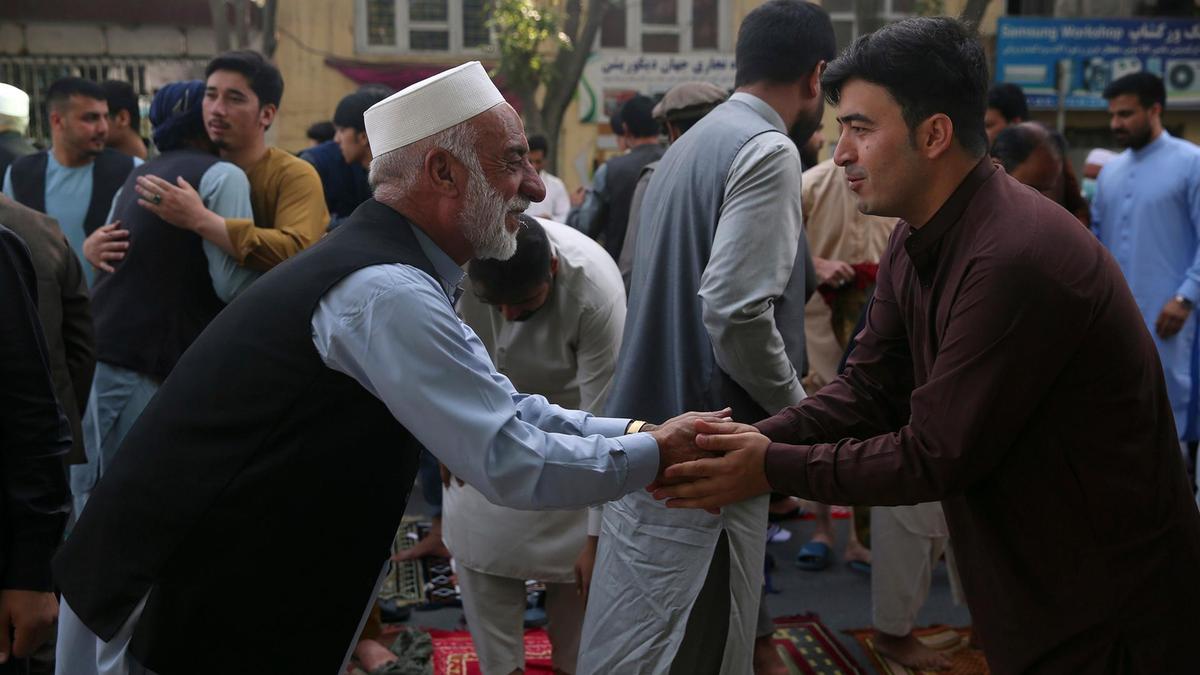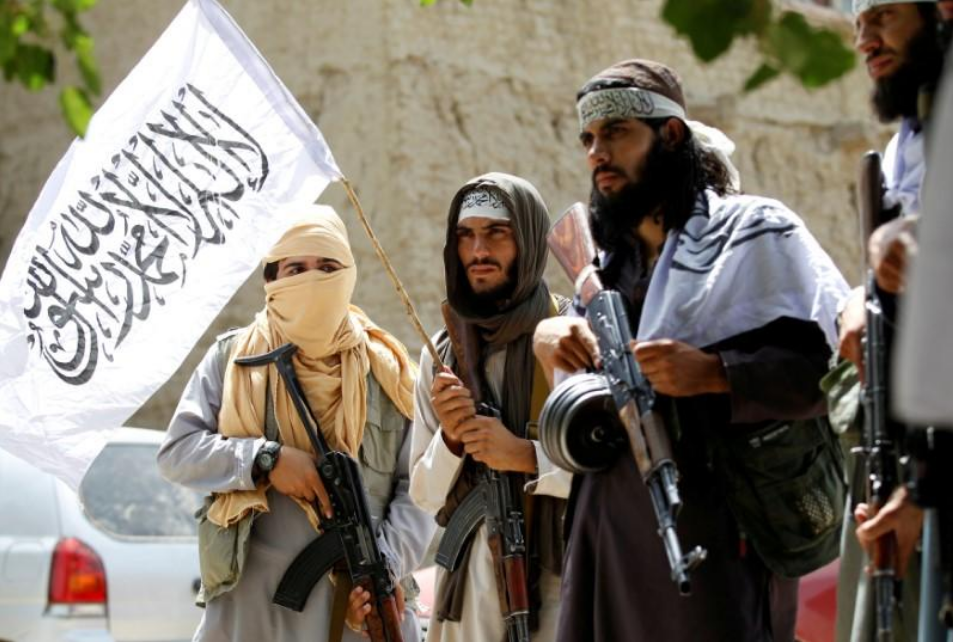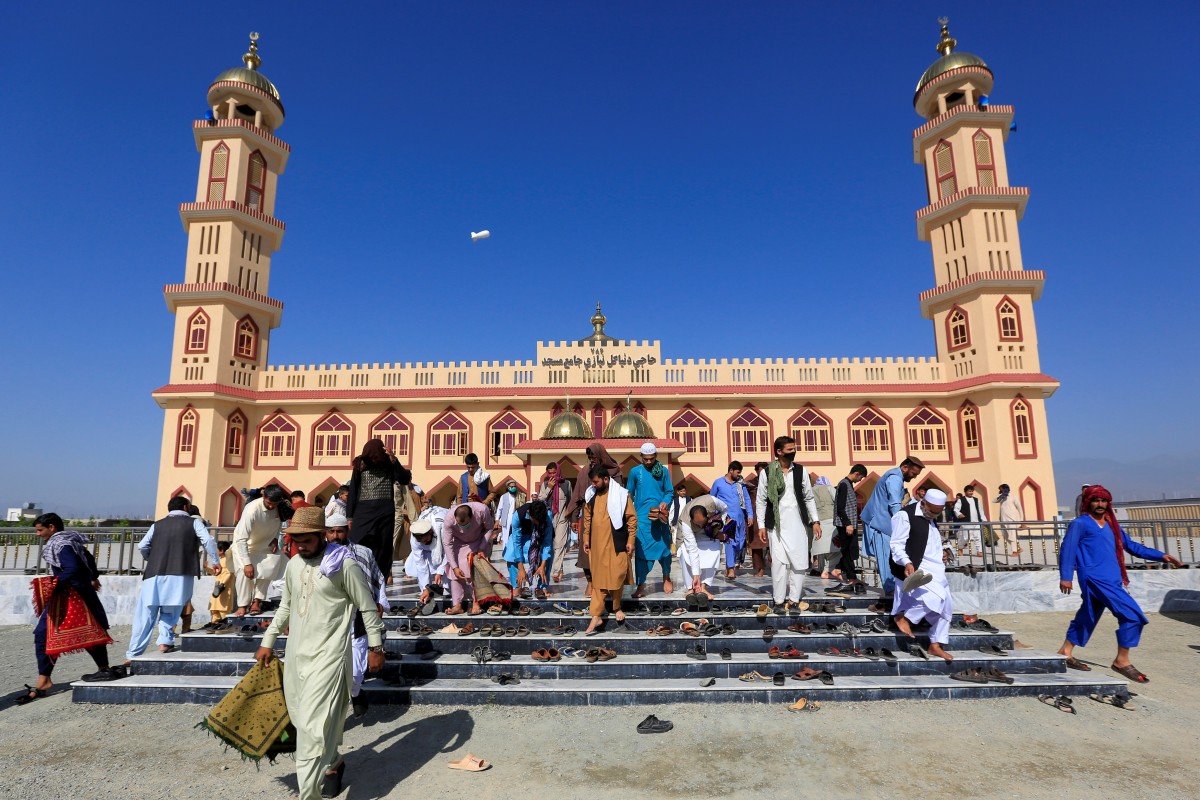
Afghans exchange greetings after Eid Al Adha prayers in Kabul, Afghanistan, July 31, 2020. /AP
Afghans exchange greetings after Eid Al Adha prayers in Kabul, Afghanistan, July 31, 2020. /AP
Afghanistan's President Ashraf Ghani on Friday ordered the release of 500 Taliban prisoners as part of a new ceasefire that could lead into long-delayed peace talks.
Ghani announced the move at the start of a three-day ceasefire offered by the Taliban for the Muslim festival of Eid Al Adha, the second of two Islamic holidays celebrated worldwide each year, on Friday, with many hoping the truce will lead to peace talks and the end of nearly two decades of conflict.
As the ceasefire commenced, hundreds of worshipers went to mosques across the capital where they were patted down by armed guards before going inside.
"To show goodwill and accelerate the peace talks, we will release 500 Taliban prisoners in response to the group's three-day ceasefire announcement," Ghani said in an Eid address.

The Taliban celebrate ceasefire in Ghanikhel district of Nangarhar province, Afghanistan, June 16, 2018. /Reuters
The Taliban celebrate ceasefire in Ghanikhel district of Nangarhar province, Afghanistan, June 16, 2018. /Reuters
There were no reports of violence since the ceasefire began, but a car bomb in Logar province killed at least 17 people including security forces on Thursday night, just hours before the ceasefire started. The Taliban claimed they were not responsible for the clash.
Ghani said the release of the militants would be completed during the holiday, and they would fulfill their side of the deal to free 5,000 Taliban fighters as outlined in a peace deal between the Taliban and the United States.
However, the 500 inmates are not on the original list of 5,000 demanded by the Taliban.
Kabul authorities have already released 4,600 of those prisoners but are hesitating about the release of the final 400, deeming them too dangerous.

Afghan men leave a mosque after prayers during Eid al-Fitr. /Reuters
Afghan men leave a mosque after prayers during Eid al-Fitr. /Reuters
"I do not have the right to decide on the release of those 400 Taliban prisoners who are accused of serious crimes," Ghani said, adding that a gathering of Afghan elders would decide their fate.
The Taliban, who have insisted on the release of those 400 militants, did not immediately comment.
The U.S.-Taliban accord signed in February stipulated Kabul would release 5,000 insurgents in return for 1,000 government forces held captive by the militant group.
Late Thursday, the Taliban claimed they had completed the release of all 1,000 government prisoners.
The contentious prisoner swap is a key precondition for the Taliban to enter into peace talks with the government for the first time in their 19-year insurgency and the halt in fighting is only the third official truce in nearly the two decades.
Both Ghani and the Taliban signaled this week they were ready for talks after Eid, provided the prisoner swap is complete.
Under the deal signed by the Taliban and the U.S. in February, "intra-Afghan" talks were slated to start in March, but were delayed amid political infighting in Kabul and a contentious prisoner exchange drag on.
(With input from AFP)